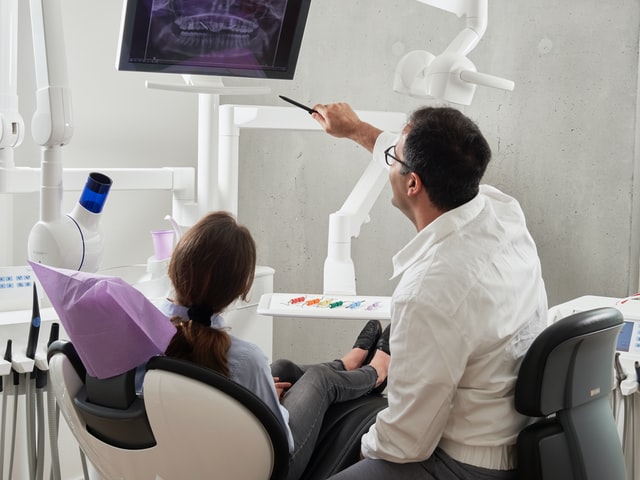A massage therapy program can be challenging on many levels. Besides tuition costs, there are books, a massage table, and student liability insurance to consider. Anatomy can be one of the most overwhelming classes for massage students. The good news is that all other lessons build off of anatomical knowledge.
What to Expect
Do you want to work in a physically challenging profession that requires regular physical fitness? Would you like to help people daily through your career? If so, massage therapy may be the field for you. Many massage students pursue a post-secondary certificate rather than a bachelor’s degree. Regardless of the type of program you follow, coursework will include classes on anatomy and the workings of the body and courses on massage techniques and modalities. Most massage schools also offer student massage clinics, which allow you to practice your skills with clients. In addition to massaging, these clinics often provide opportunities to assist with scheduling and client greeting, which can build your customer service skills. It would help if you also considered whether your school includes student liability insurance in tuition and fees. If not, you can buy a policy from companies that specialize in providing professional liability and general accident coverage for massage therapists.
Clinic
A massage therapy degree requires classroom and hands-on instruction. Many schools offer an on-campus clinic where students work with clients under the supervision of a licensed instructor to gain practical experience and build their skills. Some programs also require students to take anatomy and physiology classes, as well as pathophysiology-the study of how the body’s systems function in healthy individuals and how they may respond to an injury or illness. Other common courses include kinesiology-the research of movement and a study in chemistry. When deciding on an Atlanta massage school, consider how far you are willing to travel to attend class and if you can adjust your work schedule for the time it will take to complete the program. Also, keep in mind that massage can be physically taxing. It’s important to take good care of yourself while you’re in school. You’ll want to practice good hygiene and maintain healthy eating habits to stay focused on your studies.
Academics
You will use three critical tools in the massage program—your body, mind and spirit. Take care of all three, and you will succeed in the program and your career as a massage therapist. You will take many classes, from anatomy and physiology to kinesiology and contraindications for massage. There will be massage theory and technique classes and some education about business, marketing and professional behavior. Your state’s regulations dictate how many hours you will spend on classroom instruction and how many clinical experience hours are required. You will also learn draping techniques to promote client modesty and how to communicate effectively with clients about their needs. You must also maintain good hygiene and practice effective “bedside manners” with clients. Learn how to listen with open communication, and you will help your clients relax and feel safe in the hands of your skilled touch.
Community
Many massage schools schedule in-person or remote events like open evenings for prospective students. These can be a great opportunity to see the campus, talk with faculty and meet alums. It can also be helpful to visit massage establishments in your area and ask if they prefer hiring graduates of a particular school. While each state’s educational requirements vary, massage therapists typically need at least 300 hours of education to become licensed. Students learn anatomy, physiology and pathology; the kinesiology of how bodies and body parts move; and how to recognize when a client has a medical emergency and must provide cardiopulmonary resuscitation. A common theme among massage therapists is the sense of camaraderie between classmates. It is due to the close relationship and trust established in class and the shared experience of studying for the licensing exam together. Many students make lifelong friendships and connections through their time in massage school.



